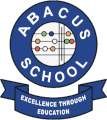South African Curriculum
The South African curriculum is a comprehensive framework for education that covers all levels of schooling, from early childhood development to tertiary education. The curriculum is designed to provide a balanced education that prepares students for both academic and practical challenges.

The South African curriculum is divided into three phases: the Foundation Phase, the Intermediate Phase, and the Senior Phase. The Foundation Phase covers Grades R to 3 and is focused on developing basic skills such as reading, writing, and numeracy. The Intermediate Phase covers Grades 4 to 6 and builds on the foundational skills learned in the previous phase while introducing more complex subjects such as natural sciences, social sciences, and technology. The Senior Phase covers Grades 7 to 9 and prepares students for the final phase of schooling and beyond.
At the end of the Senior Phase, students can choose between two pathways: the academic pathway, which prepares students for tertiary education, or the technical and vocational pathway, which prepares students for vocational training or entry-level employment.
The academic pathway culminates in the National Senior Certificate (NSC) examination, which is a standardized test that assesses students’ knowledge and skills across multiple subjects. The NSC is equivalent to other international qualifications such as the General Certificate of Education (GCE) and the International Baccalaureate (IB).
The technical and vocational pathway includes a range of vocational qualifications such as the National Certificate Vocational (NCV), which provides students with practical skills in a specific trade or industry. These qualifications are designed to prepare students for employment or further training in the relevant field.
The South African curriculum also emphasizes the importance of developing well-rounded individuals who are able to contribute to society. As such, it includes a range of subjects such as life orientation, which covers topics such as personal development, health, and civic education, and arts and culture, which includes subjects such as visual arts, music, and dance.
In addition, the South African curriculum places a strong emphasis on inclusivity and diversity. This is reflected in the inclusion of subjects such as languages, which include all 11 official languages of South Africa, and social sciences, which cover topics such as history and geography from a South African perspective.
Overall, the South African curriculum is designed to provide students with a comprehensive education that prepares them for the challenges of the modern world. It emphasizes the importance of developing both academic and practical skills, while also promoting inclusivity and diversity.
